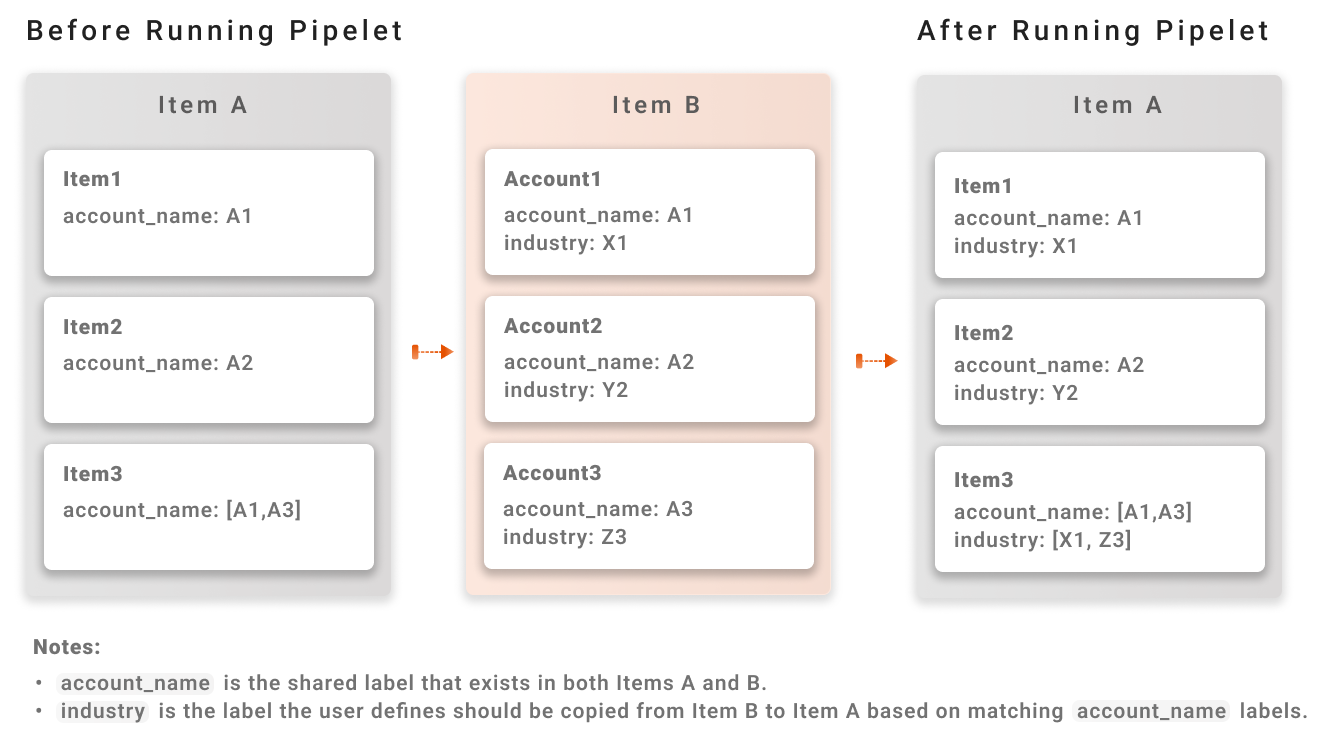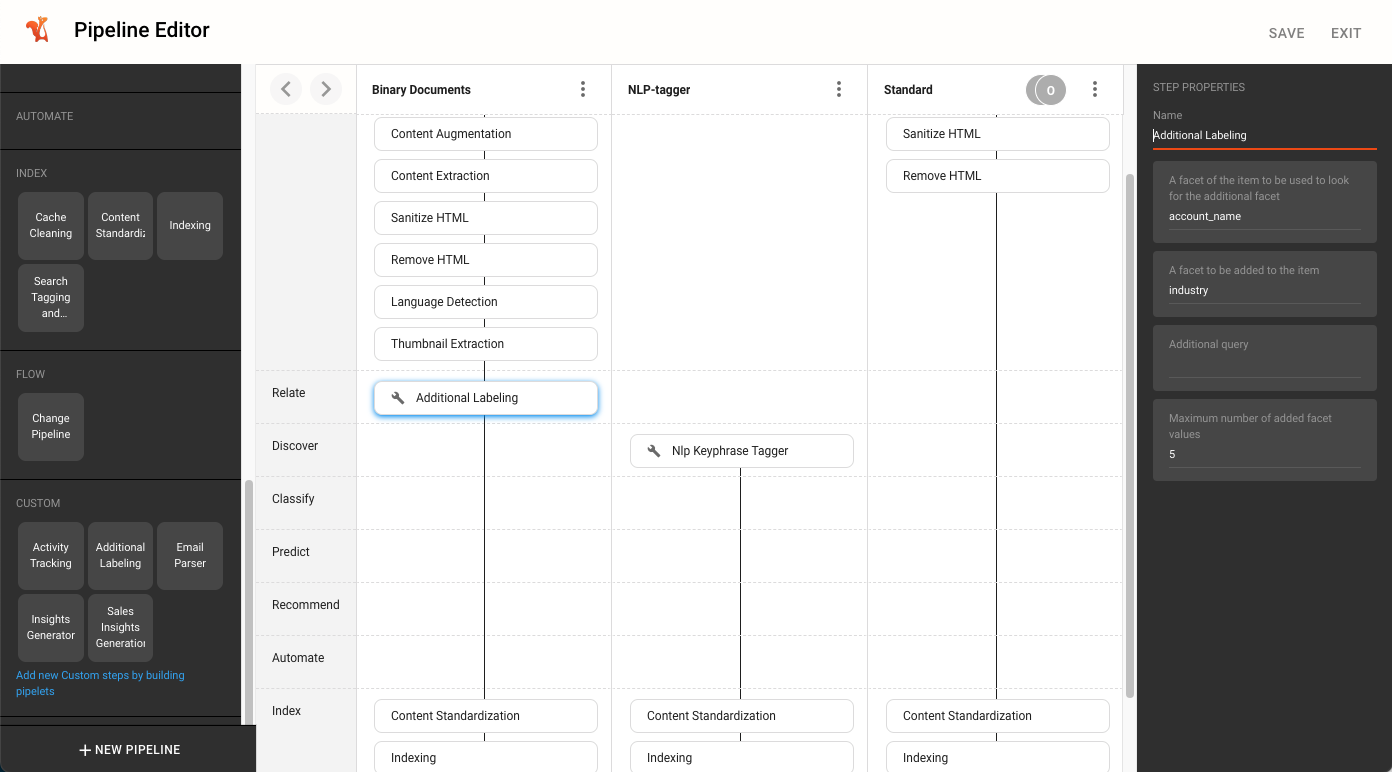Additional Labeling Pipelet#
Profile: Project Creator, Frontend Developer
This page explains the functioning of the Additional Labeling pipelet.
Project creators or frontend developers can insert this pipelet into a pipeline workflow using the pipeline editor to add additional labels to items extracted from other items based on shared labels.
Overview#
The Additional Labeling pipelet automatically adds additional labels to items extracted from other items based on shared labels.
In other words, the pipelet adds additional labels to Item A from Item B when it finds that Item A and Item B share a specified label.
The example diagram below shows two items, Item A and Item B. These items share a label called account_name. When run, the pipelet will copy industry labels from Item B to Item A based on their matching account_name labels.

Parameters#
The pipelet has four parameters, as shown in the table below:
Parameter |
Description |
Default Value |
|---|---|---|
A label of the item used to look for the additional label |
A label that already exists for source items. Based on the label value the pipelet will look for other items. |
|
A label to be added to the item |
A label that needs to be added. The label exists for other items. |
|
Additional query |
Any filtering query can be added. For example, we can specify a source where we want to look for the additional label. |
empty |
Maximum number of added label values |
The pipelet can find many different values of the additional label. Here we can limit the number of these values. |
5 |
How to Use#
The Additional Labeling pipelet is run from the Pipeline Editor in the UI.
To run the pipelet, follow the steps below:
Open your project and navigate to the Setup space.
Click the Pipeline tab to open the Pipeline Editor.
Click the orange pencil icon to edit the pipeline.
In the widget panel, scroll down to the Additional Labeling pipelet.
Drag and drop the widget to the desired place in the pipeline.

Set the facet (label) Step Properties in the right panel.
Example#
The following example is taken from a Cognitive Search application called News That Interests You.
In this example, the items within the news sources contain information about companies.
The goal is to understand what industries these companies belong to by adding additional industry label information to each of the news items.
Step 1 - Identify the Label Value to Match#
Your first step is identifying the label value you want to match, which will serve as the account_name.
Step 2 - Identify SalesForce Data Source Label#
Next, locate a SalesForce data source also containing items with account_name labels. In addition to having account_name labels, these SalesForce items should also have industry labels.
Step 3 - Run the Pipelet#
When you run the pipelet, it will match all news items with account_name labels to SalesForce items with matching account_name label values. Then it will look for industry labels and, if they exist, copy those labels from the SalesForce items to your news items.
